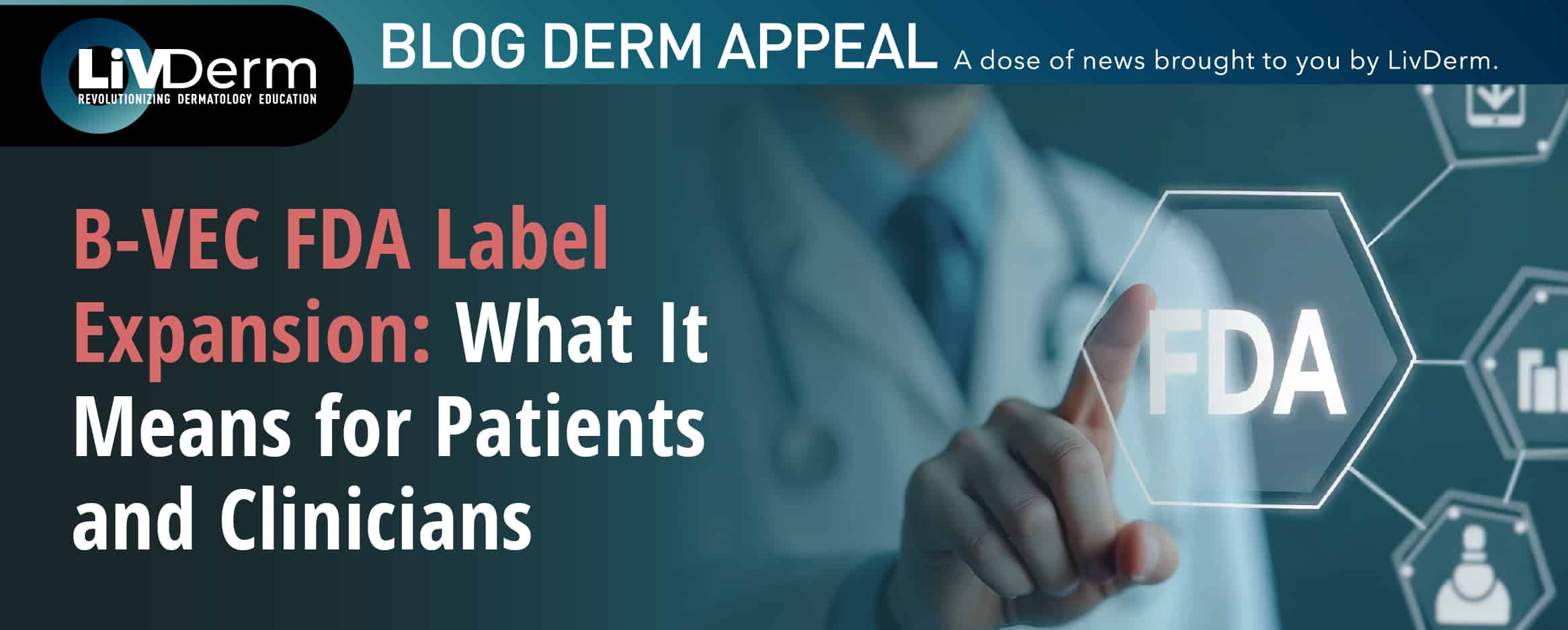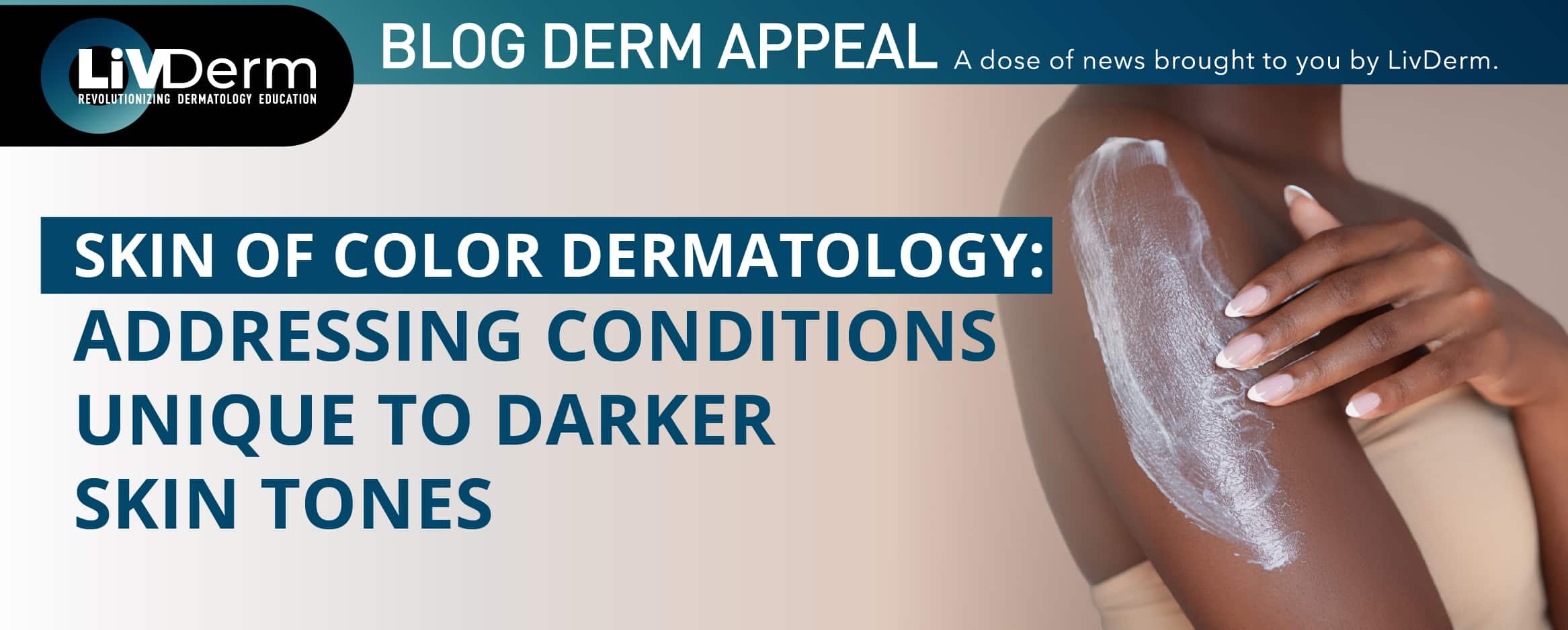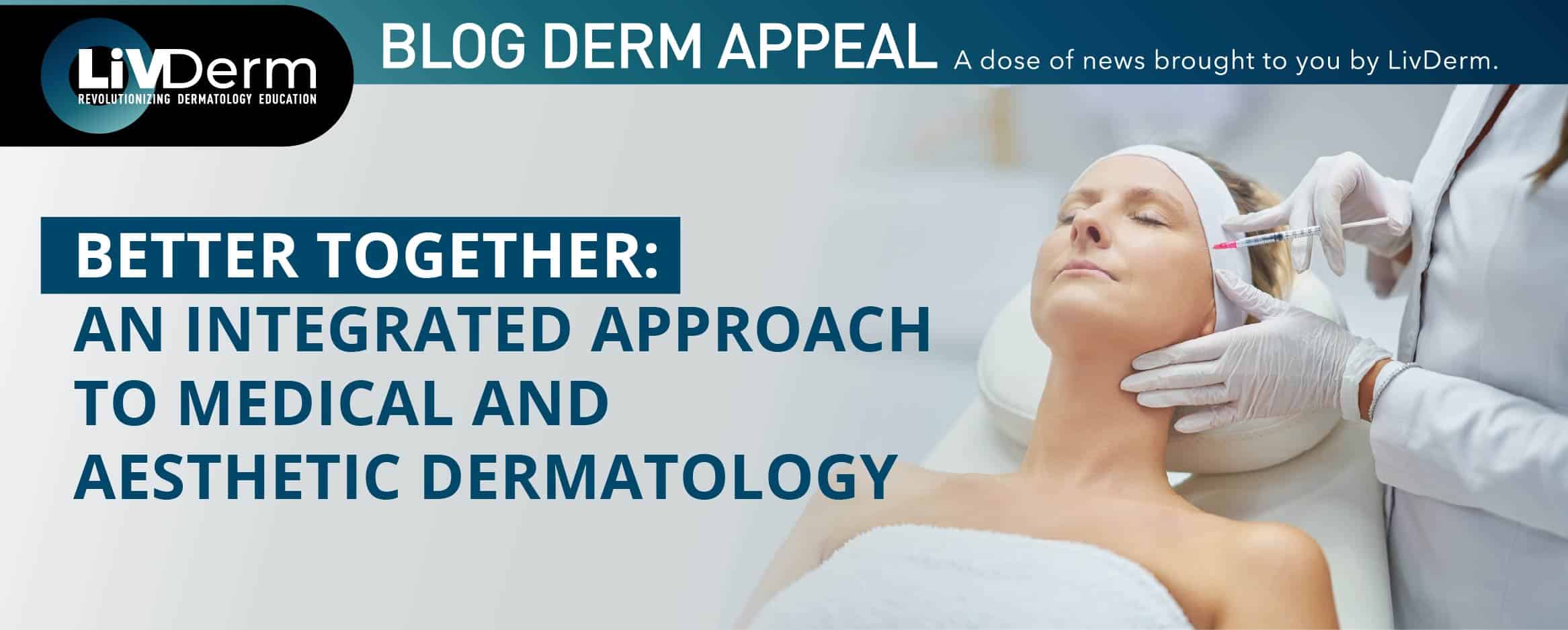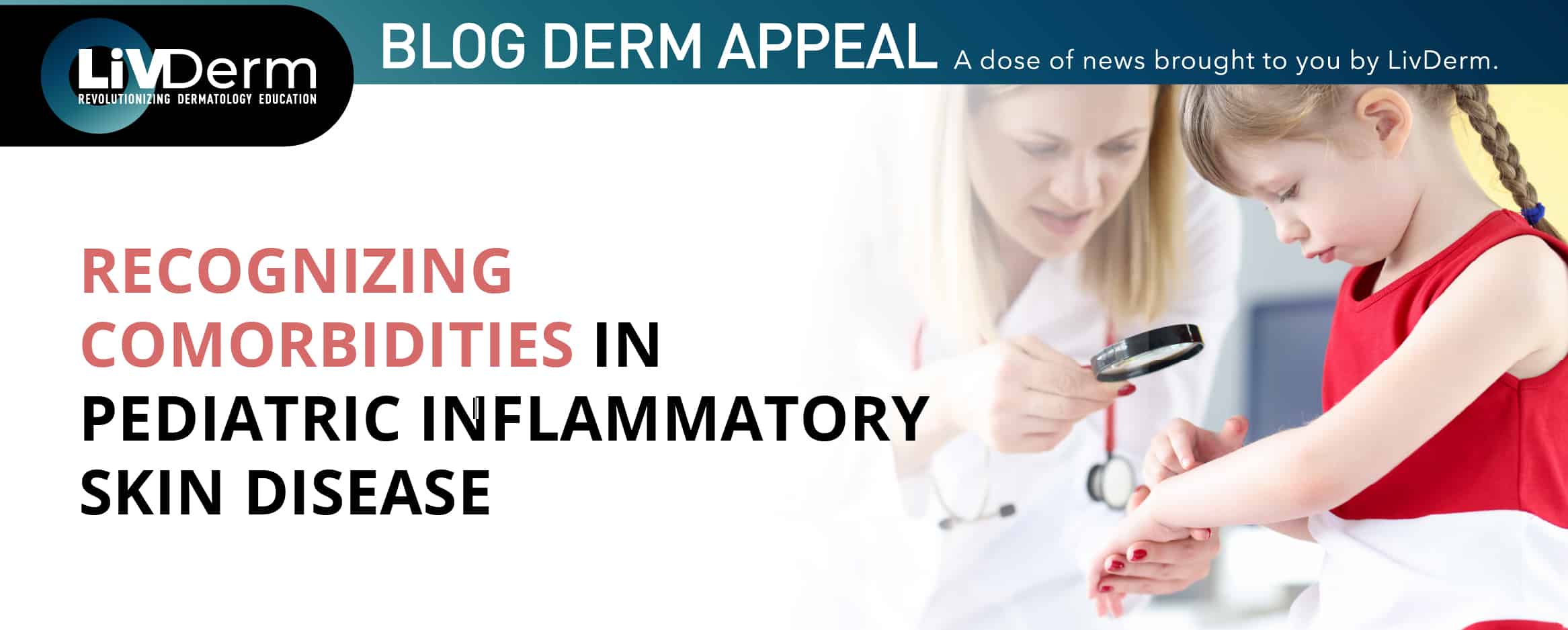In May 2023, the FDA approved beremagene geperpavec (B-VEC, Vyjuvek®), the first topical gene therapy for dystrophic epidermolysis bullosa (DEB). Before this milestone, only supportive care was available for patients living with DEB, focusing on wound care and symptom management rather than targeting the disease at its source. With B-VEC, clinicians gained a treatment that directly addresses the genetic defect by delivering a functional COL7A1 gene to affected skin, enabling localized production of type VII collagen and promoting wound healing.
Now, the FDA has expanded B-VEC’s label, widening access and reinforcing the therapy’s role in long-term care. For dermatologists, this represents progress for a rare and devastating disease, as well as a glimpse into the potential of genetic medicine for other skin disorders.
B-VEC's Expanded Label
Originally approved for patients six months and older, B-VEC is applied topically to wounds and has demonstrated durable efficacy in clinical trials. The recent label expansion includes two important updates:
- Eligibility from birth, allowing the earliest possible intervention.
- Approval for at-home administration, enabling patients and caregivers to apply the therapy themselves, reducing the need for frequent in-clinic treatments.
Krish S. Krishnan, chairman and CEO of Krystal Biotech, said,
“We believe these changes further reinforce VYJUVEK’s leadership position as the most flexible, convenient, and disease modifying medicine to treat DEB patients in the United States. Moreover, by providing patients and their caregivers the ability to apply VYJUVEK themselves, we have made it easier for patients to integrate VYJUVEK into their daily routines and lifestyle. Overall, we believe that these advancements solidify VYJUVEK as the standard of care for all DEB wounds, regardless of wound size and severity, and will further improve compliance.”
These updates are supported by findings from an open-label extension study involving 47 patients treated weekly for up to 112 weeks, 24 of whom were rollover patients from phase III and 23 were treatment-naïve. Key results included:
Wound Healing: Among rollover subjects, wounds that received B-VEC during phase III maintained high closure rates during the open-label extension with a range of 61.1–89.5%, assessed from baseline to month 12.
Patient Satisfaction: High levels of treatment satisfaction were reported.
Safety: Most adverse events were mild or moderate, no treatment-related serious adverse events occurred, and no patients discontinued therapy due to adverse events.
Clinical Implications for Dermatologists
The expanded approval carries several important implications:
- Earlier Treatment: Starting in infancy allows for proactive care at the earliest stage of disease. This has the potential to minimize cumulative wound burden and reduce long-term complications.
- At-Home Administration: Caregivers can integrate treatment into daily routines, reducing travel demands and improving quality of life for families already managing complex medical needs.
- Sustained Disease Control: Extension data support ongoing use as a safe, durable option, reinforcing B-VEC’s role as a long-term management strategy.
While EB remains a rare disease, dermatologists may increasingly encounter patients eligible for gene-based interventions, and the ability to counsel families on both the promise and the limitations will be essential.
Why This Matters
B-VEC’s expanded approval represents more than a milestone for the DEB community—it also highlights the evolving role of genetic therapies in dermatology. For the first time, a genetic skin disease can be treated not only earlier, but also in the home setting, where most of the care for these patients actually takes place. This change improves convenience, strengthens long-term disease management, and underscores the practical feasibility of gene therapy in everyday clinical practice.
As Brett Kopelan, executive director of Debra of America, explained:
“The updates to the VYJUVEK label are yet another significant and impactful step forward for all those living with DEB. Enabling caretakers to apply VYJUVEK during their standard of care regimen is an enormous positive change allowing for increased convenience without sacrificing safety. The Krystal team has always prioritized patient safety and convenience when it comes to the use of VYJUVEK and their advocating for these updates is not surprising given Krystal’s patient centric approach. This aspect of the update to the label will only increase the quality of life of those living with this challenging disorder and that is exactly what our community needs.”
For dermatologists, the implications extend well beyond DEB. B-VEC demonstrates that gene therapies can be designed for routine clinical use—topical, durable, and manageable outside of specialized centers. This sets a precedent for other inherited skin diseases, such as ichthyoses and epidermolysis bullosa simplex, while also signaling a future where genetic therapies expand from rare conditions into broader dermatologic practice.
Concluding Thoughts
The FDA’s expanded approval of B-VEC marks a new chapter in the treatment of DEB and in dermatology overall. By enabling earlier use and at-home application, the decision improves access for patients and families while underscoring the promise of gene therapy as a durable, disease-modifying option.
For dermatologists, this moment is both a reminder of the progress already achieved and a signal to prepare for a future where genetic therapies become an increasingly integral part of practice.

















